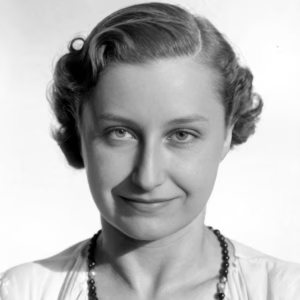
Thea Gabriele von Harbou (born December 27, 1888, in Tauperlitz, German Empire; died July 1, 1954, in West Berlin, West Germany) was more than simply an author; she was a visionary who sculpted the anxieties and possibilities of a rapidly changing world into compelling narratives. Her life, marked by artistic ambition, forged a unique voice that resonated deeply with readers grappling with the dawn of modernity.
Thea von Harbou’s childhood was one of privilege and quiet expectation, sheltered within the walls of a well-to-do family. Yet, even then, a fierce ambition burned within her—a desire to break free and claim her own destiny as an actress, a path her father did not endorse. Her 1906 debut reignited that passion, and a relationship with actor Rudolf Klein-Rogge followed as the world plunged into war. By 1917, Berlin became their haven, a city where Thea could finally pour her energy into writing. Drawn to the echoes of heroes and gods, she began weaving epic tales, stories covered with the burgeoning national spirit of the age—a reflection, perhaps, of a longing for order amidst chaos.
von Harbou’s literary career blossomed during the Weimar Republic, a period defined by both artistic innovation and profound political instability. She quickly established herself as a prolific writer, crafting novels, short stories, and screenplays with a distinctive style. Her prose is characterized by its meticulous detail, often approaching the architectural—a fitting quality given her fascination with constructed worlds. While Döblin and many other authors of the time focused on psychological realism or social commentary, von Harbou possessed a rare ability to blend these concerns with grand, sweeping visions of the future.
This talent culminated in Metropolis, first serialized in Illustriertes Blatt in 1925, a novel that would irrevocably alter the landscape of science fiction. The story presented a stark and unforgettable depiction of a futuristic city dominated by machinery and social stratification. It wasn’t merely a tale of technological progress; it was an exploration of the human cost of unchecked industrialization, a warning about the potential for dehumanization in a world obsessed with efficiency. The novel’s impact extended far beyond its initial publication, inspiring Fritz Lang’s iconic 1927 film adaptation—arguably the most influential science fiction film ever made.
von Harbou stood apart from contemporaries like H. G. Wells and Jules Verne, who often focused on scientific plausibility and adventure. While acknowledging their pioneering spirit, her work explored philosophical questions of power, class struggle, and the search for meaning in a mechanized age. Unlike the more optimistic futurism found in some American pulp magazines of the era, von Harbou’s vision was imbued with a sense of melancholy and foreboding, reflecting the anxieties simmering beneath the surface of post-war Europe. Her focus wasn’t on what technology could do, but rather who controlled it, and at what price.
Though often associated with the “New Objectivity” movement in German literature, von Harbou’s work transcends easy categorization. She was a complex figure who navigated the turbulent political currents of her time, actively aligning herself with the Nazi regime in the early 1930s—a controversial chapter that casts a long shadow over her legacy. Despite this complicated past, Thea von Harbou remains a pivotal author whose exploration of technology and society continues to resonate in our own age of rapid change, reminding us that the future is not simply something that happens to us, but something we actively create—with all its potential for both wonder and destruction.